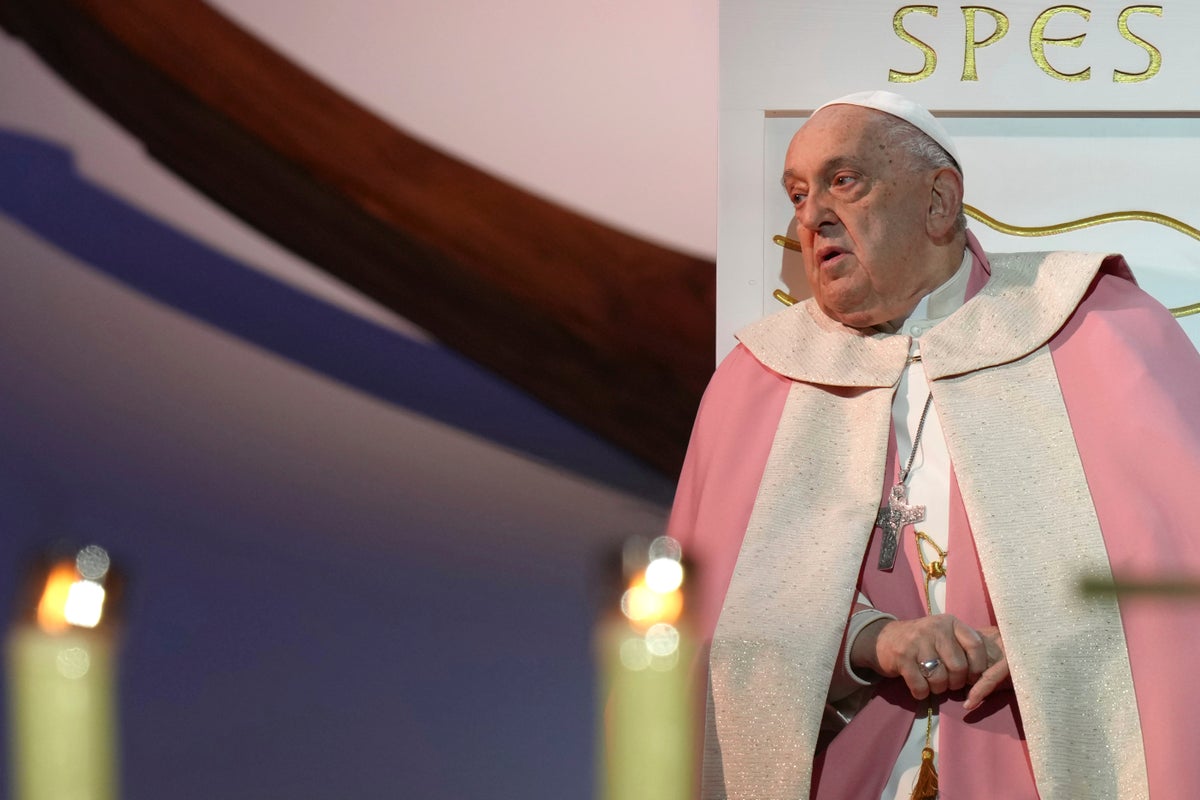By Nicole Winfield
The debate surrounding the traditional Latin Mass within the Catholic Church has intensified significantly in the early days of Pope Leo XIV’s pontificate.
It follows the alleged leak of Vatican documents that appear to contradict the rationale behind his predecessor Pope Francis’s restrictions on the ancient liturgy.
These documents reportedly indicate that a majority of Catholic bishops who participated in a 2020 Vatican survey expressed general satisfaction with the Latin Mass.
Crucially, they warned that imposing restrictions would “do more harm than good”.
The texts, originating from the Vatican’s doctrine office, were posted online on Tuesday by Vatican reporter Diane Montagna, who has closely followed the Latin Mass dispute.
Neither the Vatican spokesman nor the prefect of the doctrine office immediately responded to requests for comment or confirmation of the documents’ authenticity on Wednesday.
If verified, the leaked information could place considerable pressure on Pope Leo to address the liturgical divisions that became particularly pronounced during Pope Francis’s 12-year papacy, especially within the United States.
Leo has consistently stated that his primary aim is to foster unity and reconciliation within the Church, and many conservatives and traditionalists view the Latin Mass controversy as an urgent matter requiring resolution.
In one of his most controversial acts, Francis in 2021 reversed Pope Benedict XVI’s signature liturgical legacy and restricted access for ordinary Catholics to the old Latin Mass. The ancient liturgy was celebrated around the world before the modernising reforms of the 1960s Second Vatican Council, which allowed Mass to be celebrated in the vernacular, with the priest facing the pews.
Francis said he was cracking down on the spread of the old liturgy because Benedict’s decision in 2007 to relax restrictions had become a source of division in the church.
Francis said at the time that he was responding to “the wishes expressed” by bishops around the world who had responded to the Vatican survey, as well as the Vatican doctrine office’s own opinion.
“The responses reveal a situation that preoccupies and saddens me, and persuades me of the need to intervene,” Francis wrote at the time.
Benedict’s relaxation had been “exploited to widen the gaps, reinforce the divergences, and encourage disagreements that injure the church, block her path, and expose her to the peril of division”, he said.
The documents posted online, however, paint a different picture. They suggest that the majority of bishops who responded to the Vatican survey had a generally favourable view of Benedict’s reform and warned that suppressing or weakening it would lead traditionalist Catholics to leave the church and join schismatic groups. They warned any changes “would seriously damage the life of the church, as it would recreate the tensions that the document had helped to resolve”.
The documents include a five-page “overall assessment” of the survey findings, written by the Vatican’s doctrine office, as well as a seven-page compilation of quotes from individual bishops or bishops’ conferences.
The documents contain some negative and neutral opinions, and say some bishops considered Benedict’s reform “inappropriate, disturbing”, dangerous and worthy of suppression.
But the Vatican’s own assessment said the majority of bishops who responded expressed satisfaction. It cited the rise in religious vocations in traditionalist communities and said young Catholics in particular were drawn to the “sacredness, seriousness and solemnity of the liturgy”.
It is not clear what other evidence, anecdotes or documentation informed Francis’s decision to reverse Benedict. But from the very start, Francis was frequently critical of traditionalist Catholics, whom he accused of being navel-gazing retrogrades out of touch with the evangelising mission of the church in the 21st century.
The new documents have comforted traditionalists who felt attacked and abandoned by Francis.
“The new revelations confirms that Pope Francis restricted the Traditional Mass at the request of only a minority of bishops, and against the advice of the dicastery in charge of the subject,” Joseph Shaw, of the Latin Mass Society of England and Wales, said.
“The majority view of the bishops, that restricting the TLM would cause more harm than good, has sadly been proved correct.”
In an email, he said Leo should address the issue “urgently”.
